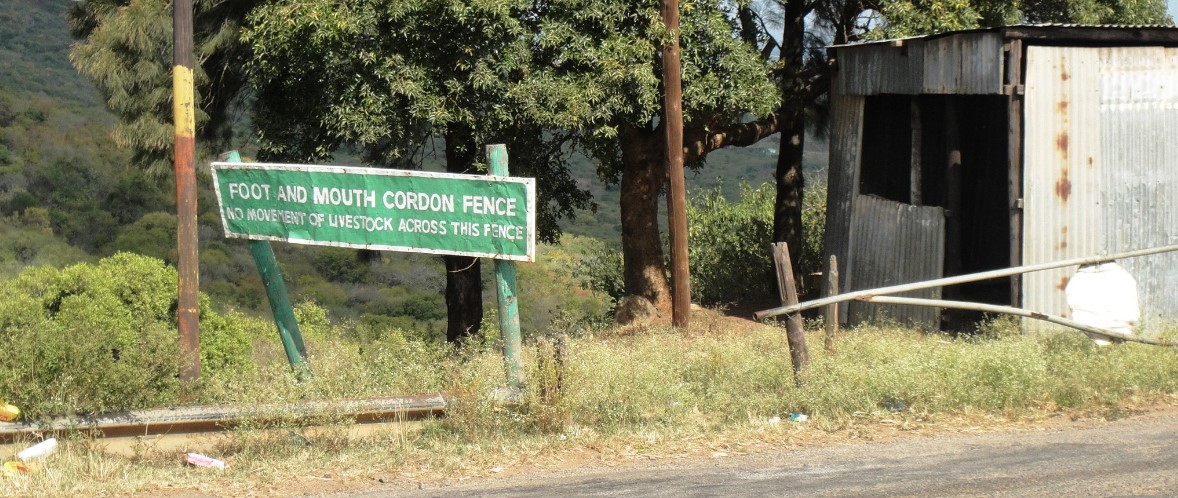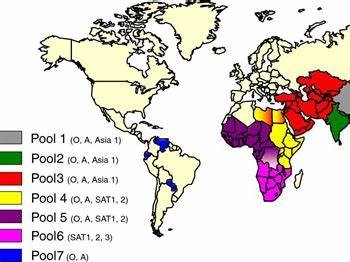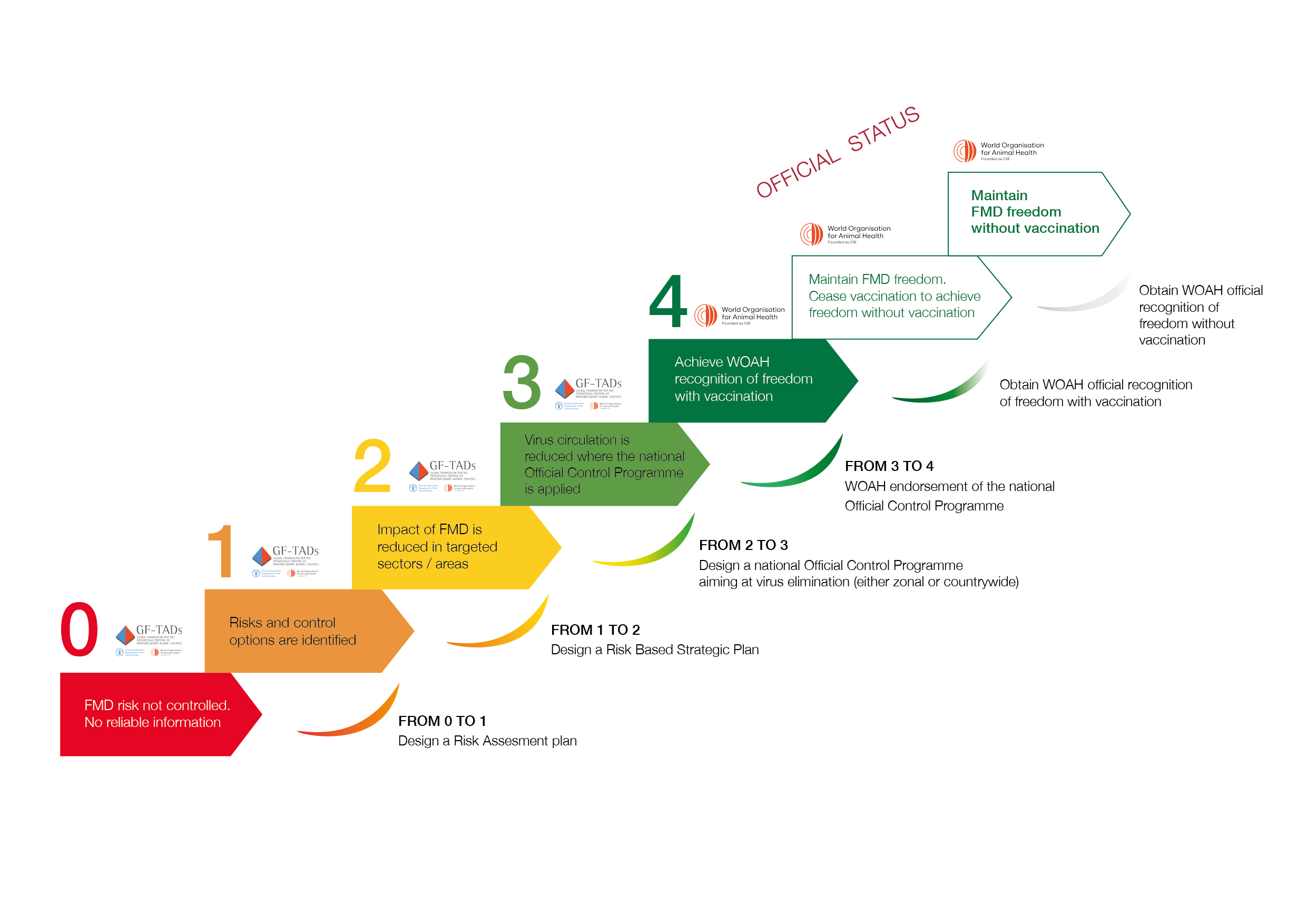
Foot-and-mouth disease (FMD) is endemic in the Africa region. It is one of the most contagious livestock diseases which bring about economic losses to many countries that depend on livestock for generation of revenue.
Taking Botswana as an example, livestock production, particularly beef products, contribute up to 65% of revenue in the agricultural sector (Seleka and Kebakile, 2015). Botswana exports approximately 80% of its beef to the European and South African markets (van Engelen et al., 2013). The revenue gained from these transactions account for up to one third of the GDP of the country.
Map. Distribution of FMD virus pools.
An uncontrolled FMDV outbreak can therefore cause a decline in income because as a control measure, international markets do not accept any beef imports during an FMDV Early detection of FMDV and initiation of control measures are thus pivotal in circumvention of severe economic losses.
In recent years, countries reporting the most FMD cases were Benin, Burkina Faso, Ethiopia, Tanzania, and Zambia.
The FMD progressive control pathway (PCP) is a tool to assist endemic countries, developed and endorsed by the European Commission for the Control of Foot-and-Mouth Disease (EuFMD), FAO and WOAH. The FMD – PCP recommends that control efforts should be coordinated at regional level. The pathway offers a structured stepwise approach to FMD control.
Fig. The FAO/EuFMD/WOAH Progressive Control Pathway for FMD. The status of countries on the PCP-FMD is evaluated according to defined criteria. Countries with endemic disease are in stages 0 to 3 while countries with no endemic disease within livestock are at stage 4 or above.
The country starts with gaining a better epidemiological understanding of FMD (stage 1), gradually implementing risk-based control measures (stage 2), before evolving to stage 3, at the end of which country may apply for the WOAH endorsement of official control program for FMD aiming at eliminating FMDV circulation (Stage 4). The higher stages correspond to the country eventually recognized by the WOAH as being free from FMD with or without vaccination.
The ultimate long-term goal of the FMD PCP is not to obtain global eradication of FMD but to attain a state of cost-effective control of FMD in susceptible livestock by 2030.
PDF - 2.56MB
PDF - 3.33MB
PDF - 1.02MB
PDF - 368.92KB
PDF - 2.58MB
PDF - 1.91MB
WOAH Reference Laboratories
Dr Joseph Hyera
Botswana Vaccine Institute
Department of Animal Health and Production
Broadhurst Industrial Site, Lejara Road
Private Bag 0031
Gaborone
BOTSWANA
Tel: +267 391 27 11
Email: [email protected]
Dr Livio Heath
Onderstepoort Veterinary Research
Transboundary Animal Diseases Programme
Agricultural Research Council
Private Bag X05
Onderstepoort 0110
SOUTH AFRICA
Tel: +27-12 529.95.75
Email: [email protected]
Ash Road, Pirbright,
Woking, GU24 0NF
UNITED KINGDOM
Tel: +44 – 1483 232441
Email: [email protected]
FAO Reference Centre for FMD in Africa
Dr Misheck Mulumba
Onderstepoort Veterinary Research
Agricultural Research Council
Private Bag X05
Onderstepoort 0110
SOUTH AFRICA
Tel: +27-12 529.91.06
Email: [email protected]




